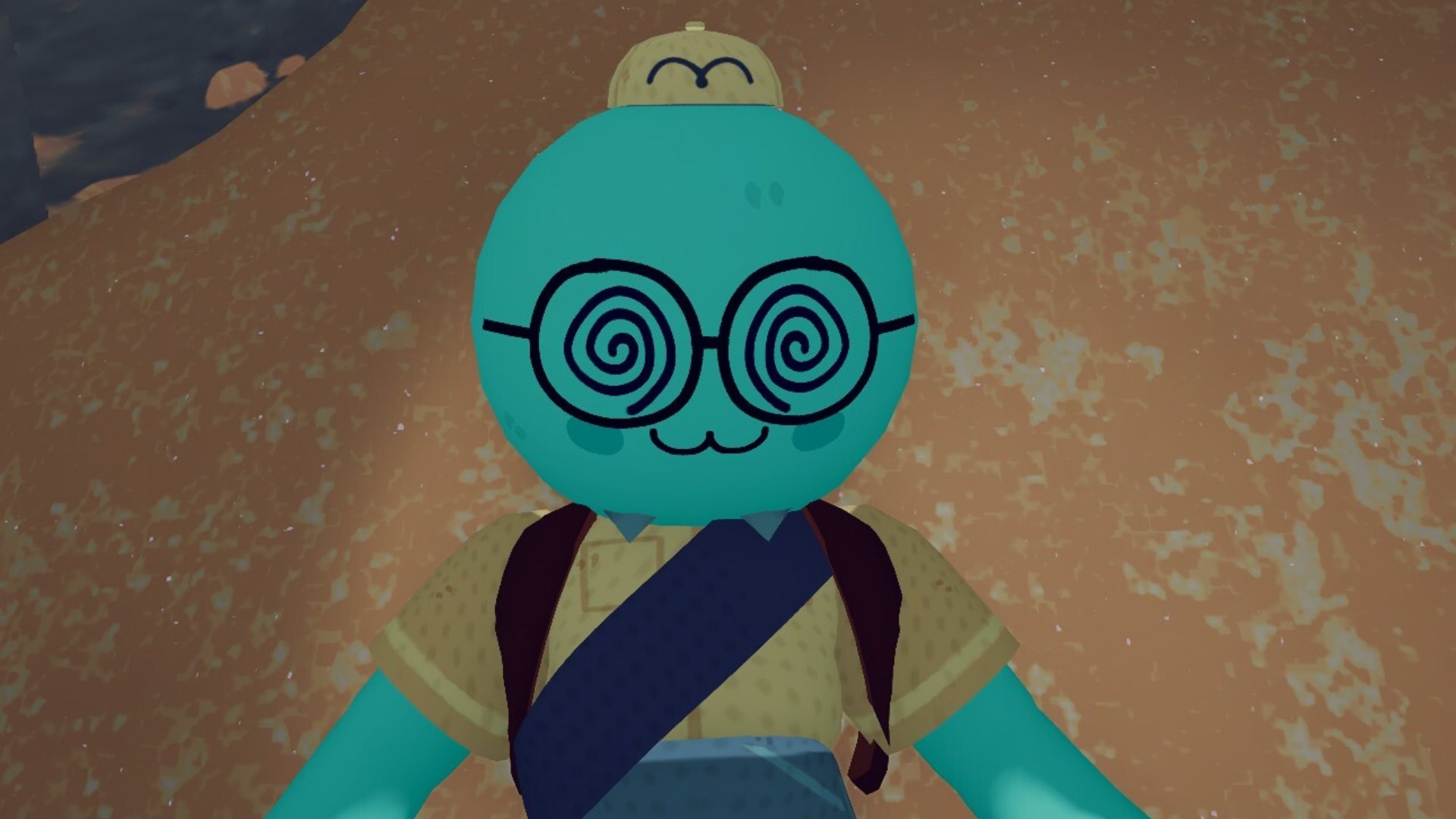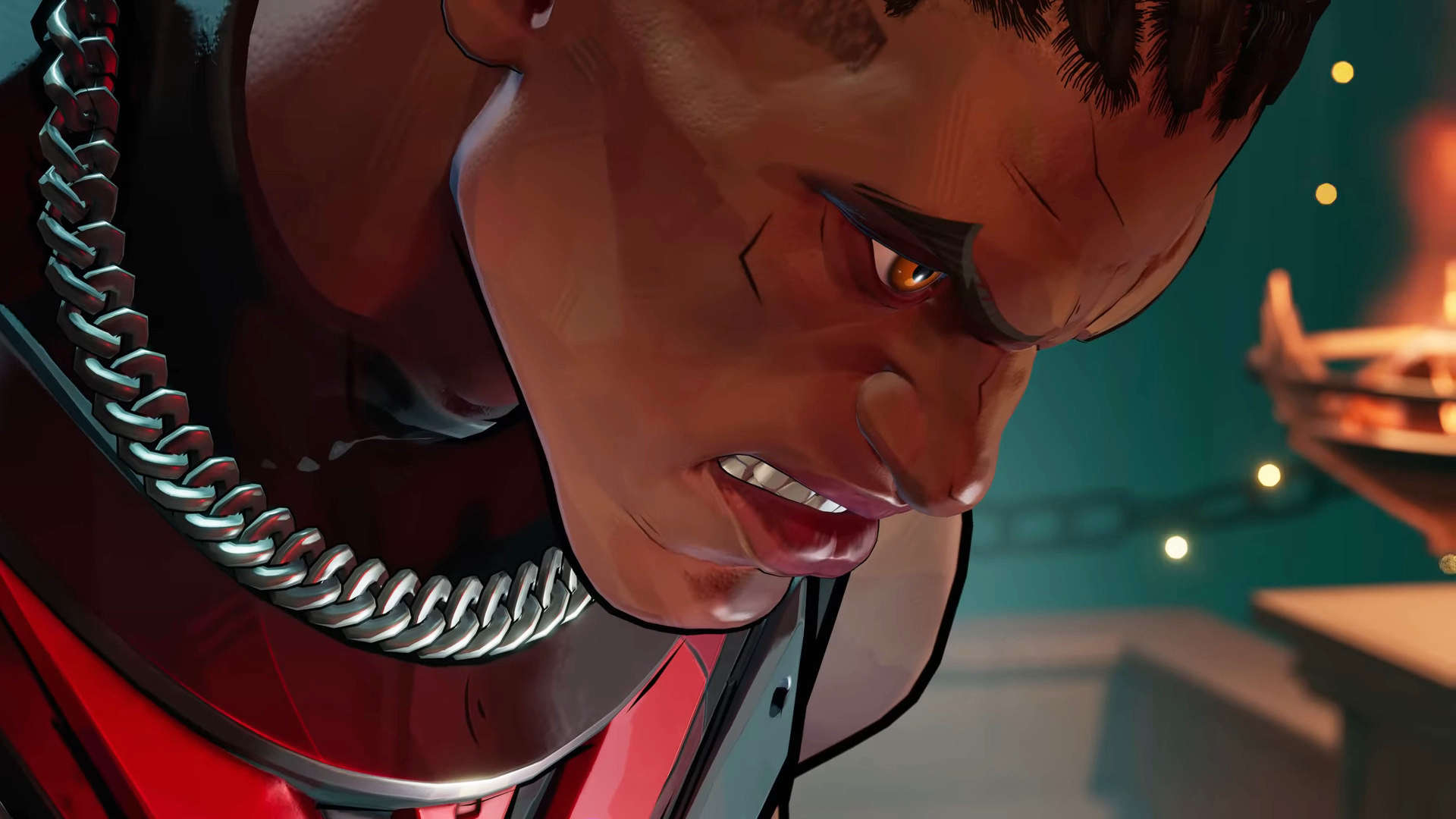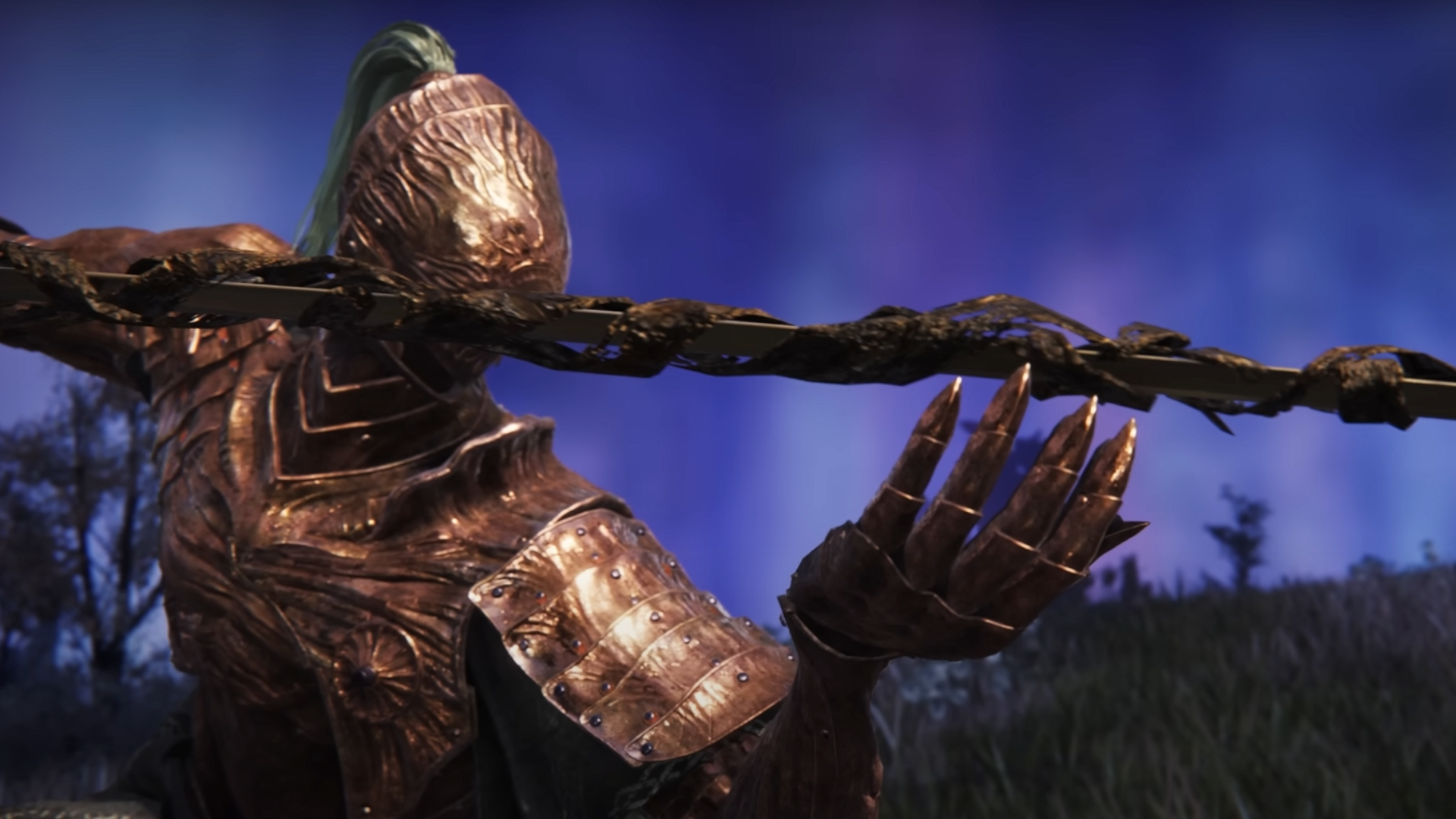
The Killing Tree is now available on digital and DVD.
“Christmas Horror” is one of the most bottom-weighted horror subgenres, packed with holiday title puns that deliver not an ounce of holly-jolly terror. Rhys Frake-Waterfield’s The Killing Tree sounds like another no-budget X-Mas imposter, but consider this an early stocking stuffer. At roughly 70 minutes, with an absurd dedication to concept and extreme midnighter vibes? The Killing Tree unleashes a murderous Christmas tree on seasonal partygoers caught in an insane-to-describe ritual meant to raise a slasher from the dead.
Sarah Alexandra Marks stars as Faith, a solo Christmas hostess left alone in her family’s massive estate one year after a murderer slayed her parents. Frake-Waterfield and co-writer Craig McLearie draw inspiration from Child’s Play and Christmas Horror favorite Jack Frost as the soul of maniac Clayton Slayter (Marcus Massey) is summoned through black magic into the vessel of a Christmas tree – and not just any enraged Evergreen, either. Slayter’s branchy form can seemingly fluctuate in size, stretches piny-spiky appendages like tentacles, and moves with human strides (comical shuffling). Translation? Some actor in a tree suit “stealthily” stomps around a drunken holiday party scenario and carries out an oddball massacre because no one here is fooling anyone about low-budget-but-fun intentions.
Somehow, The Killing Tree joins one-in-a-million successes like Santa Jaws and Silent Night, Deadly Night as Christmas Horror films that joyfully and emphatically deliver what’s promised. For every Jack Frost, there are ten Bikini Bloodbath Christmases or Deathcembers. The Killing Tree skews positive because Frake-Waterfield has an eye for stellar camerawork and isn’t trying to cheat people with an exploitable title. Treevenge is still the reigning Christmas tree genre experience, but The Killing Tree is no Trees 2: The Root of All Evil. Frake-Waterfield accepts the unenviable challenge of hooking audiences with a walking, talking, stalking Christmas tree, and does so with lunatic confidence that sets a steadier-than-expected tone.
The Killing Tree’s lower budget means multiple deaths involve computer-generated animations, as Slayter’s wooden-stretchy arms tear victims dressed like dinner table poppers in half. It screams for gory practical flair, but doesn’t squander the deadly tree demon’s aggression. Marcus Massey mutters morbid threats and chuckles when pulverizing fresh corpses, adding that layer of demented investment The Killing Tree so desperately needs. Special effects are undoubtedly lacking, yet bloody splatters onto the camera and mauled visitors aren’t wasted on audiences. Production roughness adds to the fever-dream element of Frake-Waterfield’s tonally self-roasting sincerity, going places that include anime(ish) tree-on-tree brawls and knife-wielding arbor fixtures.
Of course, your patience for The Killing Tree wholly depends on your taste for SYFY Saturday specials or other bonkers concepts done well enough, like Killer Sofa or Baby Frankenstein. McLearie’s screenplay finds a way to make Faith’s red-stained Christmas about traumatic confrontation, which might displease those who demand more mini-Kaiju antics. The Killing Tree sustains its spellcasting Child’s Play parallels far better than it should (Clayton Slayter even resembles Brad Dourif’s Charles Lee Ray). Still, confidence can be synonymous with craziness and in this case, doesn’t relent if you’re cold on the tinsel-draped tree costume that indistinguishably moves like a do-it-yourself Halloween costume. No one here is winning Best Actor nods, nor does the experience benefit from durations of grief analysis. That’s why it’s splendid news how The Killing Tree gets in, gets out, and goes hard into presentations that would unravel under less playful oversight.






